- Home
- Daphne Du Maurier
The Scapegoat Page 24
The Scapegoat Read online
Page 24
I seized poor Cesar's leash, and the dog, aware of disgrace yet scenting heaven knows what wounded prey that had dragged itself into the woods to die, leapt forward in a sudden bound, nearly tearing my arm out of its socket, and we plunged on, the pair of us, into a copse as thick and black as a witch's lair. I thought I heard a warning shout from Paul, but there was nothing I could do about it: my fate was linked to Cesar's and his to mine, and we went off together through the wood, until, breathless and exhausted, we collapsed together upon a heap of cones. He watched me with a canine grin, saliva dripping from his jaws, and then, seeing he was neither beaten nor sworn at, turned his back on me and began to lick the wounds sustained in battle.
I lit a cigarette with a sigh, and, leaning back against a tree, wondered how far we were from St Gilles. There was no sound of man or gun or bird, nothing but the light and dismal patter of the rain. Presently, damp and stiff, my bandaged hand starting to throb, I dragged myself to my feet, and with my hell-hound in tow started off once more through the fastness of the wood, feeling, as the poet did before me, that my companion would be with me through the nights and through the days and down the arches of the years, and I should never be rid of him.
There was no break in the weeping sky to give direction. I could not tell whether we walked north or south, east or west, and Cesar was no help to me. Still leashed, he trotted at my side as docile as a poodle, stopping when I stopped, suiting his pace to mine. Suddenly he stiffened, and almost under my feet a pheasant rose and flew in alarm into the undergrowth ahead. As we scrambled through a belt of narrowing trees another bird took off, and yet another, for we must have inadvertently stumbled upon some hiding-place or lair. In the distance I could hear shouts and then a shot, but away to the left of me, and the startled birds were swerving to my right.
Then I saw, some little way ahead, that at last the trees were clearing. We were coming to another of those broad rides traversing the woods which I had hoped to find before. We stumbled on to it, wet, bedraggled, as covered with leaves and brushwood as a poacher and his cur. And I perceived, not twenty yards away, Paul and Robert staring at me, while posted down the ride, like sentinels on guard, the line of sportsmen waited in ignorance for the birds I had prematurely scattered.
17
Gaston appeared from nowhere with the car. He also had the flask, last seen in the hotel bedroom at Le Mans and now refilled with cognac, which I swallowed humped on the back seat of the Renault. Through the misty windscreen I watched the disconsolate figures of the sportsmen, baulked of their prey, turn and disappear once more through the belt of trees in hopeful quest of less elusive quarry. Gaston, devoted, anxious, peered into my face, suggesting that Dr Lebrun should be summoned to attend me, but he read my symptoms wrongly. My hand was not hurting me, nor was I in a high fever: the cognac was the solace that I needed.
After a while, the flask emptied, we jolted once again over ruts and muddy ridges. I recollect a low farm building, the trackway beside it already filled with cars, and waiting to welcome me at the doorway the tenant of the farm, immense, red-faced, bucolic, and his chattering shrimp of a wife. They led me into a huge barn, and I barely had time to huddle in the far corner, screened from the open door, before the chasseurs entered, thirsty, tired, and steamy wet, turning the barn to babel until the rafters rang. Servants from the chateau hastened round with the wine which Gaston had brought. I remember Renee on one side of me and the man from Le Mans upon the other, and Renee telling him in great detail the story of the bonfire, and explaining that ever since I had been in a state bordering upon delirium, and nobody understood it except herself. Scarcely had she finished when the man from Le Mans started chattering about high finance, coups on the Bourse, gambles successfully won. My head reeled. Here was the one man who might have helped me - surely he must be the one Bela had spoken of? - and I didn't even know his business or his name.
'I'm flying to London late tonight,' he said. 'The usual monthly trip. If there's anything I can do for you there, you know where to find me.'
In my haze of alcohol, I thought for one crazy instant that he had plumbed my secret. I stared at him, shaken, then caught at his sleeve and said, 'What are you getting at? What do you mean?'
'Exchange of pounds,' he replied briefly. 'If you have any English friends, I know how to work it. Easiest thing in the world.'
'Friends?' I asked. 'Indeed I have English friends,' smiling foolishly, knowing myself secure. Of course he had not guessed, of course he did not realize what I meant. 'I have a very good friend in London who lives near the British Museum,' I said. 'He'd exchange pounds for francs any day of the week, if he could get them.' And because I was speaking of the self who sat beside him, and the joke seemed to me exquisitely funny, I added, 'Give me a piece of paper and a pen.'
He handed me his pocket diary and Biro, and laboriously I wrote my own name and address in block capitals, and gave the diary back to him in drunken solemnity, saying, 'Any assistance you give this chap you'll be giving to me; we're closer than brothers.' Then I burst out laughing, thinking him extremely stupid not to see the point. Next I was aware of someone touching my elbow. It was Marie-Noel, and she was saying, 'Uncle Paul wants to know if you are going to say a few words, or shall he?' Before I could answer the financier was clapping vigorously, and suddenly the whole company was banging and stamping, and the financier was patting me on the shoulder, saying, 'Go on, Jean, make a speech.' In a haze of alcohol, surrounded on all sides by a sea of faces, I thought, this is where I make my mark as seigneur of St Gilles. I may have ruined the sport this morning, but now I am in form.
'Mesdames et messieurs,' I began, 'once again it is my pride and pleasure to welcome you upon this happy occasion, and although, alas, an accident has prevented me from taking an active part in the proceedings, at least I am consoled by the fact that my brother has deputized so well. It is not an easy thing to do, to take another's place, as I am perfectly aware. The truth of this was forced upon me only yesterday morning when I was down at the verrerie looking through the accounts.' I pulled myself up. What the devil was I saying? The two identities were merging into one. 'Be that as it may,' I floundered, 'I am not here to talk about the verrerie but about shooting ...'
I felt someone jogging my elbow - it was the financier, scarlet in the face, making signs to me to finish, murmuring for my ear alone, 'Have you gone crazy, you idiot?' In front of me were the other faces, puzzled, uneasy, and it dawned upon me that my speech was not entirely a success, and that it would be best to finish it speedily with some jocular remark.
'In conclusion,' I said, lifting my glass, 'I will only add this - that my damaged hand today surely prevented disaster. The marquis was wise to go home when he did. If I had carried a gun ...' and here I paused for emphasis '... some of you present might never have survived.' I stopped, oddly relieved to have uttered my own truth, but I could not understand why nobody clapped. However feeble my joke may have seemed to them, surely courtesy demanded at any rate a show of applause? Instead, there was a shuffling of feet, and everybody began to move away and outside as though the barn had suddenly become unbearably warm and they longed for the open air. My words had been lamentably few, but I could not see how they had in any way been offensive.
Renee was with me again, and Dr Lebrun. 'I think you must have a touch of fever,' he said. 'It would be wise to get back to the chateau as soon as possible.'
'Nonsense,' I said, 'my hand isn't hurting at all.'
'All the same,' he said, 'you'd be wiser to lie down.'
I was in no condition to argue. I allowed myself to be led by Gaston to the car, and as we turned out of the farmyard I could see the straggling line of sportsmen moving off to their afternoon objective. It was still raining, and I did not envy them.
'My speech didn't seem to go down very well,' I said to the silent Gaston at my side, half excusing myself, half trying to turn it into a matter for laughter between us.
He did not answer for
a moment. Then the corner of his mouth twitched.
'Listen, Monsieur le Comte,' he said, his voice an apology, 'you had a little too much to drink, that was all.'
'Was it so noticeable?' I said.
I felt rather than saw the shrug. 'People are sensitive,' he said, 'especially about the past. It doesn't do to mix up war and peace and make a joke of it.'
'But I didn't do anything of the sort,' I said. 'I was speaking of something quite different.'
'Excuse me, Monsieur le Comte,' he said, 'I misunderstood you. So did they.'
We drove the few miles back in silence. As I got out of the car, and he stood waiting for further orders, it struck me suddenly that possibly not all the guests would be returning for refreshment later. It might be that some of them would now make excuses and go home. I put the point to Gaston.
'It is one of those things, Monsieur le Comte,' he said, 'that are best left to the discretion of those concerned. In any case, if few turn up to drink in the dining-room, I can promise you that the kitchen quarters of the chateau will be completely filled.'
I went upstairs and crept softly into the dressing-room so as not to disturb Francoise. Throwing myself down on to the bed, I slept instantly. I was woken by someone whispering in my ear. The whisper was at first soft, part of a breaking dream. Then it came louder, and opening my eyes I saw that it was dark, raining still. A figure stood by the bed. It was Germaine, the little femme de chambre.
'Come quickly, Monsieur le Comte,' she was saying. 'Madame la Comtesse is unwell, she is asking for you.'
I sat up instantly, switching on the light. Germaine looked frightened, and I did not understand why she should have come to me.
'Where's Charlotte?' I said. 'Has she sent you for me?'
'Charlotte is downstairs, Monsieur le Comte,' she whispered. 'There is a great crowd in the kitchen eating and drinking, you understand, all those who were at the shoot today, and Charlotte told me to stay with Madame la Comtesse because she wanted to join the others below. It isn't often, she said, that there is company at the chateau, and surely for once I could stay upstairs and listen, for Madame la Comtesse was sleeping and would give no trouble.'
I was up now, and struggling into my jacket. 'What's the time?' I asked.
'It's after eight, Monsieur le Comte,' she said. 'There are still a few guests in the dining-room with Monsieur and Madame Paul and Mademoiselle Blanche, but not so many came as were expected. Gaston told us that a number had gone home because they were wet through, and also because you, Monsieur, were unwell and things were not quite as usual.'
I straightened my tie and smoothed my hair before the mirror. At least I was sober again.
'What's the matter with Madame la Comtesse?' I asked.
'I don't know, Monsieur le Comte,' she answered, looking frightened once again. 'She was sleeping, and then she started to groan and to ask for Charlotte, but Charlotte had told me not to go down for her, so I went to the bed and asked if there was anything I could do. I told a lie, I said I could not find Charlotte. Then she asked for you, not Mademoiselle Blanche or the doctor or anyone else, only Charlotte or you, Monsieur le Comte, and she said to come at once, no matter where you were or what you were doing. I was frightened, she looked so ill.'
She followed me out of the dressing-room and up the stairs. Away below I could hear the sound of revelry from the kitchen quarters, curiously in contrast to the usual deep silence of St Gilles. We passed through the swing-door on to the third corridor, and at once the music and the laughter stopped. We were shut off from sound, enveloped in shadow, for this part of the chateau had no part in the merriment below.
When we came to the bedroom door I paused, something telling me I should go in alone, and asked Germaine to wait outside in the corridor. The room was dark. Only a feeble glow from the stove enabled me to distinguish the shape of the furniture, of the bed, and because I did not want to disturb the comtesse by turning on the light, I went to the window and eased the shutter so that a streak of pallor might at least fall upon the carpet and make the darkness grey. As I folded back the shutter I could hear the steady rain running in the lead guttering as I had imagined it would in winter, churning and tumbling the rubble of dust and leaves, sweeping them down to course out of the gargoyle mouth. Looking from the window I saw that the mist had descended too. The chateau was isolated in its plot of ground above the empty moat, like a dead world lost in vapour.
Her voice came to me, faint and strangely guttural, from the depths of the vast bed. 'Who is it?'
'It's I, Jean.'
I moved away from the window and went to her. I could see nothing but her form under the covers, not her face.
'I'm ill,' she said. 'Why didn't you come before?'
Her words, 'Je souffre', do not lend themselves to another language. The distress is there, physical or mental, embraced in the single phrase.
'What do you want me to do?' I asked.
She moved restlessly, and I knelt down beside the bed and took her hand.
'You know perfectly what I want you to do,' she said.
There were medicines on the table beside the bed, and I glanced towards them, perplexed, but she shook her head, impatient, exasperated, and moaned, thrashing her head from side to side. 'Charlotte keeps it next door,' she said, 'in the dressing-room, in the drawer of the cupboard there. Surely you remember where it is?'
I got up, went into the dressing-room, and switched on the light. There was only one cupboard in the small room, with a single drawer, and this I opened. Inside were two boxes, one of them still half-wrapped in paper which I recognized. It was the same wrapping that had covered the gift in the valise, the gift which I had given into Charlotte's hands that first evening in the chateau. I took the wrapping off now, and opened the box. It was full of little ampoules packed one upon the other in layers of cotton wool. They contained liquid, and a label upon each, with the single word morphine. I opened the other box. It held a hypodermic syringe. There was nothing else in the drawer. As I stood there, staring, I heard her calling me from the bedroom, 'Jean, why don't you come?' Slowly I took the syringe out of its box, and one of the ampoules, and laid them on the table below. There was cotton-wool on the table, and a bottle containing spirit, but in the days of the war, when these things had been familiar to me, kneeling beside a doctor on the floor of an air raid shelter, or in an ambulance, I had never had the feeling of revulsion that possessed me now. Then we acted in mercy, to deaden pain. This was different. I understood at last what it was that Jean de Gue had brought his mother from Paris. But his mother was not ill or dying, neither was she in pain.
I went back into the bedroom and turned on a light which I found concealed in the hangings of the bed. The woman lying there was not the one who had stood beside me on the terrace that morning, regal and commanding, but another, grey and old and frightened, her hands restless, her eyes staring, and she kept turning her head from side to side on the pillow in a movement that was horrible and inhuman, like something long imprisoned without food or light or water.
'What are you waiting for?' she said. 'Why are you so long?'
I knelt beside her. My burn did not matter any more, and I put both my hands behind her, and turned her head towards me so that she was forced to look at me and be still.
'I don't want to give it to you,' I said.
'Why?'
The staring eyes searched mine, and the massive face, grey and sagging, seemed to crumple, becoming twisted and distorted like a paper mask fixed on the battered body of a guy dragged by shrieking children in a foggy London street. It seemed to me, as I looked at her, that she had the same dead texture of skin, that her eyes were not eyes but sockets, her mouth a hoop, the tangled, unbrushed hair, horse's hair, and the person I held a shell without life or feeling. But somewhere within the shell was a particle of light that flickered more faintly than the last glow of ash from a bonfire. It was concealed from me, but it was there, and I did not want it to die.
>
'Why?'
Once again she spoke, this time in anguish, and she pulled herself up in bed and held my shoulders. The mask became a face, and the face hers and mine and Marie-Noel's. The three of us were together, looking out at me from her eyes, and the voice was no longer deep and guttural but the voice of the child when she spoke to me the first evening and asked, 'Papa, why did you not come and say good night to me?'
I got up and went into the bathroom. Breaking the neck of the ampoule, I filled the syringe, and came back and prepared her arm with the spirit as I remembered we had done in the war. Then I drove the needle into her arm, pressed the plunger and waited, and she leant back on her pillows and waited too. Her eyelids flickered, and for a moment, before closing them, she looked at me and smiled. I took the syringe back to the dressing-room, washed it and replaced it in the box, and put the empty ampoule in my pocket. Then I shut the door and went and stood by the bedside once again. The anguish had gone from the face, and the likeness too. She was neither Marie-Noel, nor myself, nor the mother of Jean de Gue; she was something sleeping, unconscious, unaware of pain. I crossed the room to the window and opened the shutters. The pattering rain fell into the leads and the gutters and out of the gargoyle mouth down to the empty moat, and there was no sound anywhere at all but this sound of falling rain. I looked at my bandaged hand, burnt yesterday in the fire through cowardice and shame for what it could not accomplish, and it seemed to me that what it had now done was more cowardly and shameful still. However much I tried to tell myself that what had happened in this room was compassionate and merciful, it was not true. I knew that I had done what the son and the mother had done before me - I had taken the easiest way out.
I went into the corridor and found Germaine still standing there, waiting. I said to her, 'It's all right now, Madame la Comtesse is sleeping. I've left the light on. She won't notice it. You had better sit by the stove until Charlotte comes up.'
I went along the corridor, through the swing-door and on to the other landing, and the sound of laughter and music came floating up towards me once again from the back regions of the chateau. I could hear voices too coming from the salon - evidently the guests had not yet gone - and as I walked on to the terrace the door of the salon opened, the confusion of voices sounded louder, then quietened again as the door closed, and Marie-Noel came out and stood beside me.

 Jamaica Inn
Jamaica Inn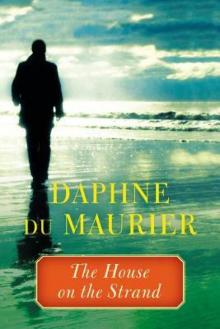 The House on the Strand
The House on the Strand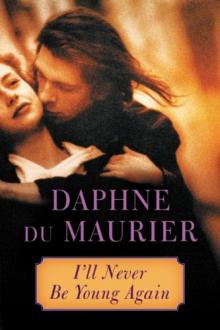 I'll Never Be Young Again
I'll Never Be Young Again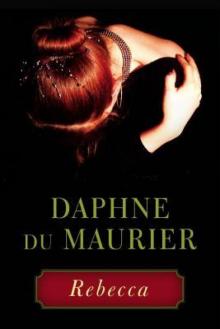 Rebecca
Rebecca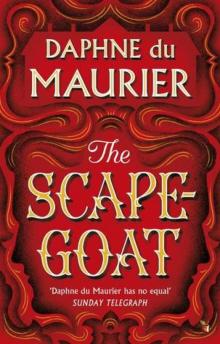 The Scapegoat
The Scapegoat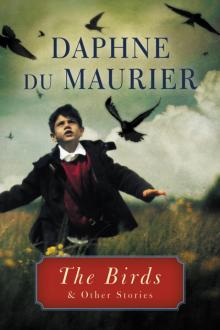 The Birds and Other Stories
The Birds and Other Stories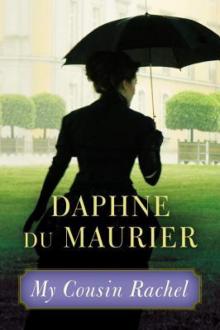 My Cousin Rachel
My Cousin Rachel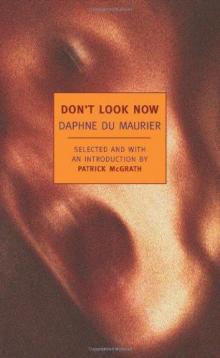 Don't Look Now
Don't Look Now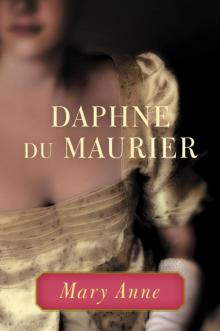 Mary Anne
Mary Anne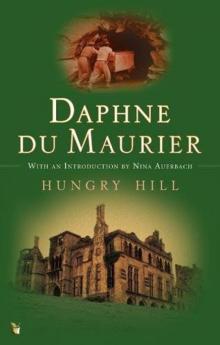 Hungry Hill
Hungry Hill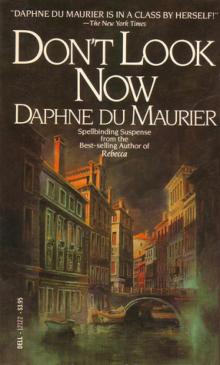 Don't Look Now and Other Stories
Don't Look Now and Other Stories The Loving Spirit
The Loving Spirit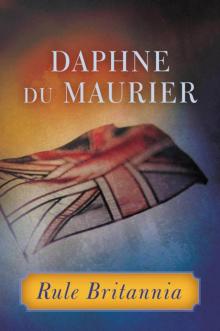 Rule Britannia
Rule Britannia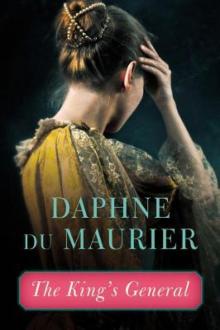 The King's General
The King's General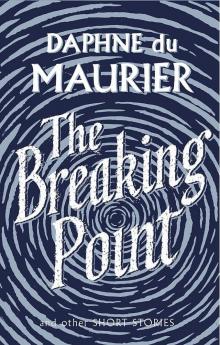 The Breaking Point: Short Stories
The Breaking Point: Short Stories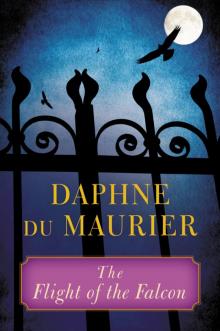 The Flight of the Falcon
The Flight of the Falcon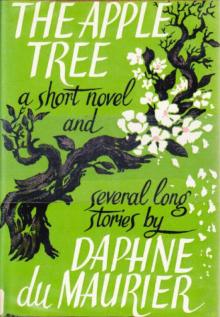 The Apple Tree: a short novel & several long stories
The Apple Tree: a short novel & several long stories The Breaking Point
The Breaking Point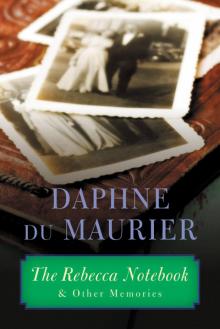 The Rebecca Notebook
The Rebecca Notebook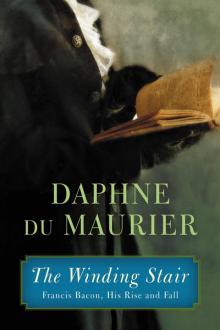 The Winding Stair: Francis Bacon, His Rise and Fall
The Winding Stair: Francis Bacon, His Rise and Fall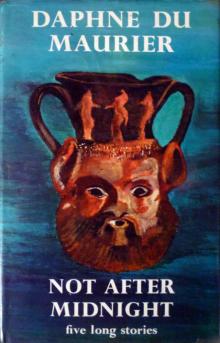 Not After Midnight & Other Stories
Not After Midnight & Other Stories The Doll
The Doll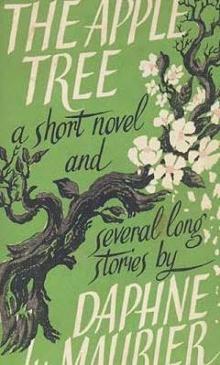 The Apple Tree
The Apple Tree